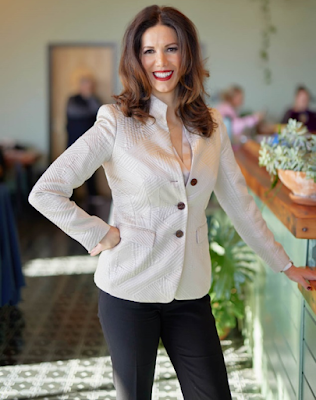Celebrating Women's History at Mizzou: Honoring Trailblazers and Achievements
As we commemorate International Women's Day on March 8th and delve into Women's History Month throughout March, it's a fitting moment to reflect on the remarkable journey of women at the University of Missouri. From breaking gender barriers to pioneering academic fields, the contributions of women have been foundational to the development and success of our university.
International Women's Day (IWD) is a special day celebrated annually on March 8 as a focal point in the women's rights movement. IWD focuses on issues such as gender equality, reproductive rights, and violence and abuse against women. The MU Student Unions invite you to view the annual exhibition, "Celebrating Women's History at Mizzou," on the First Floor's Mort's at the MU Student Center. The exhibition is on view throughout March.
"Celebrating Women's History at Mizzou," on the First Floor's Mort's at the MU Student Center
Breaking Barriers: The Pioneers
The story of women at Mizzou began with Mary Louise "Lulie" Gillette, the first woman to graduate from the university in 1870. Gillette's accomplishment paved the way for future generations of women seeking education and opportunity. Following her footsteps, Sarah Anna Ware earned the first non-normal degree in 1872, signaling a significant stride towards gender equality in education.
Mary Louise "Lulie" Gillette, MU's first female graduate (Missouri Alumnus, September 1967)
Mrs. Sarah Anna (Ware) Taggart, BS 1872, AM 1879, on the day of her graduation (Missouri Alumnus, September 1926)
Throughout the late 19th and early 20th centuries, women continued to make their mark across various disciplines. Dr. Anna Searcy Browne became the first female graduate of the Medical School in 1900, while Miss Ada Wilson achieved a similar feat in engineering, graduating in 1907. The legal field saw its trailblazer in Mrs. Carey Mae Sprague, who graduated from the Law School in 1896.
Dr. Anna Searcy Browne, MD 1900, first female graduate of the Medical School (Savitar, 1897)
Miss Ada Wilson, BS CE 1907, first female graduate of the College of Engineering (Savitar, 1907)
Mrs. Carey Mae (Carroll) Sprague, LLB 1896, first female graduate of the Law School (Savitar, 1896)
Notably, Dr. Caroline McGill earned her Ph.D. in anatomy and physiology in 1908, becoming the first woman to receive a Doctor of Philosophy degree from Mizzou. Her subsequent contributions to medicine exemplify the impact of women's education beyond university walls.
Dr. Caroline McGill, Ph.D. 1908, the first woman to receive a Doctor of Philosophy degree
In 1910, she was appointed as the first trained pathologist for the state of Montana. She returned to academia in 1912 and received her M.D. from Johns Hopkins University. McGill practiced medicine in Butte, Montana, from 1916 until 1956.
Mary Paxton Keeley, BJ 1910, first female graduate of the School of Journalism
(The State Historical Society of Missouri, Photograph Collection (C165_1))
Mary Paxton Keeley received her Bachelor’s degree in 1910, the only woman in the first graduating class of the School of Journalism, which was established in 1908. While at MU, she was a member of Kappa Kappa Gamma, wrote for the University Missourian and the Savitar, participated in women’s basketball, and served as a class officer. She returned to MU in 1928 where she completed her Master’s degree and served as a faculty member until her retirement in 1952. After she died in 1986 at age 100, the Columbia Public Schools honored her service to the community by naming an elementary school after her.
Leading the Way: Faculty and Academic Leadership
As women gained access to higher education, the administration at Mizzou responded by integrating accomplished female scholars into faculty positions. Grace C. Bibb, appointed as dean of the Normal School in 1878, marked a significant milestone as the first woman to serve as a dean at the university.
Grace C. Bibb of St. Louis served as dean of the Normal School (now the College of Education) from 1878 until 1883. She was the first woman to serve as a dean at MU. (University of Missouri Archives, C:8/4/5)
Dr. Edna D. Day further cemented the role of women in academic leadership by becoming the first woman appointed as the Chair of an academic department. Her pioneering work in Home Economics not only shaped the curriculum but also laid the groundwork for future generations of students. "Digestibility of Starches of Different Sorts as Affected by Cooking". (Savitar, 1909)
Shaping the Curriculum: The School of Home Economics
The establishment of the School of Home Economics underscores the university's commitment to providing women with comprehensive education beyond traditional gender roles. Dr. Edna D. Day's vision for the program emphasized scientific research and practical skills necessary for managing modern households.
In 1900, the College of Agriculture established a one-year program in household economics for “young women who were interested in the proper management of the home.” The program expanded to a four-year Bachelor of Science in Agriculture degree in 1906. The university catalog of 1916/17 stated that women were required to take courses in English, Chemistry, Botany, Dairy husbandry, and electives in “technical agriculture.”
Gwynn Hall, a dedicated space for the home economics program, was constructed in 1924. In 1960, the program was elevated to become a distinct school within the College of Agriculture, and, in 1973, the school expanded such that the university created the College of Home Economics, a separate entity equal to the College of Agriculture. To reflect the diversity of disciplines and the mission of the college, the name was changed to the College of Human Environmental Sciences in 1988. Today, in addition to the School of Social Work, HES departments include: Architectural Studies; Human Development and Family Studies; Nutritional Sciences (including Dietetics and Exercise Physiology); Personal Financial Planning; and Textile and Apparel Management.
The Home Economics Club (Savitar, 1908)
Women's Athletics and Tiger Women
As we celebrate the rich history of women at the University of Missouri, it's crucial to acknowledge the vibrant tapestry of achievements in contemporary times. One significant arena where women have excelled is in athletics. From the courts to the fields, Tiger Women have showcased their prowess, determination, and dedication to excellence.
The rise of women's athletics at Mizzou mirrors broader societal shifts toward gender equality in sports. Today, female athletes proudly represent the university across various disciplines, from basketball and soccer to track and field. Their achievements not only bring glory to the school but also inspire future generations of women to pursue their athletic dreams.
Desireé Reed-Francois Serves as Mizzou’s 21st Director of Athletics. Reed-Francois is the first female athletic director in Mizzou’s history, the first female athletic director in a public institution in the SEC, and the first Hispanic female and woman of color athletics director at the Football Bowl Subdivision (FBS) level.
Sophie Cunningham (BS 2020) is regarded as one of the best basketball players in Mizzou’s history.
Nikki Thole was the first women’s soccer player in the history of MU to be named to an All-American team. Thole played soccer at Mizzou from 1997-2000 (Savitar, 1999).
Moreover, initiatives like Tiger Women provide a platform for female students to connect, support, and empower each other. Through networking events, mentorship programs, and advocacy campaigns, Tiger Women fosters a sense of community and solidarity among women on campus, amplifying their voices and experiences.
Calling for Inclusion: Adding Women's Stories to Our Narrative
As we reflect on the legacy of women at Mizzou, it's essential to recognize that our history is continually evolving. While we celebrate the achievements of pioneering women from the past, we must also ensure that the stories of contemporary women are included and celebrated.
Peggy Cherng, (MS 1971, PhD 1974) is the current Co-Chief Executive Offer of the Panda Restaurant Group.
Peggy Cherng's remarkable achievements in engineering are matched only by her profound commitment to education and philanthropy, exemplified through generous donations supporting student scholarships and programs at the University of Missouri's College of Engineering and Honors College, leaving an indelible mark on the community.
Claire McCaskill (BA 1975, JD 1978) was the first woman Senator elected from the state of Missouri.
Sheryl Crow (BS Ed 1984) is a Grammy award-winning singer and songwriter from Kennett, Missouri.
Dr. Marcia Chatelain (BA, BJ, 2001) is an author, scholar, speaker, and strategist based in Washington, D.C.
Delia Cai (BJ, 2015) is a journalist based in New York City. Currently, she is a senior Vanities correspondent at Vanity Fair, covering culture and celebrity. Before that, she worked at popular media outlets Buzzfeed and The Atlantic.
Therefore, I call upon all students, faculty, and staff to actively contribute to our collective narrative by highlighting the achievements, contributions, and experiences of women at the University of Missouri. Whether through research projects, oral histories, or social media campaigns, let us amplify the voices of women from all walks of life and ensure that their stories are woven into the fabric of our university's history.
By embracing diversity, equity, and inclusion, we not only honor the past but also shape a more inclusive and equitable future for all. Together, let us continue to champion the rights and achievements of women at Mizzou and beyond.
Happy International Women's Day and Women's History Month!



















Comments
Post a Comment